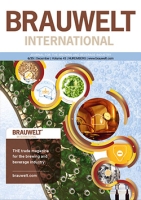The ZD-high-pressure compressors by Atlas Copco are the first worldwide to allow a complete oil-free inflation of PET preforms. For the bottle makers and fillers this reduces the risk of contaminating the products with oil and unclean compressed air to zero. The testing method for certification according to ISO 8573 was implemented by TÜV Rheinland on the basis of the strictest regulations currently existing and by simulating lifelike industrial operating conditions. The tests have been dealing with all possible kinds of contamination with oil, regarding liquids, aerosols and vapours. Result: Oil was not traceable under any circumstances. So Atlas Copco is the only manufacturer with a Class 0 certification for its whole oil-free compressed compressor fleet.
Sipa, a company belonging to the Zoppas Industries group, leader in the field of solutions for the beverage bottling world, has just achieved an important goal, reinforcing its position as a supplier of complete lines, from the manufacturing of PET bottles through to final packaging. On 1st September, the Company from Vittorio Veneto (Treviso), headed by Gianfranco Zoppas acquired 100% of Parma’s Berchi Group, a manufacturer of complete bottling and packaging lines.
At the Kulmbacher Brauerei AG, the new KHS filling and packaging line fills the wide variety of beer that is the brewery’s brand spectrum in both 0.33 l and 0.5 l glass bottles.
Until recently, the Gräfliche Arco-Valley Brauerei located in the Lower Bavarian town of Eichendorf, was experiencing such severe problems with foaming while filling carbonated apple and cola-based beverages that it became necessary to find a solution. The problems with foaming were serious enough that it was necessary to reduce the nominal throughput of the filler from 36 000 bottles (0.5 l) per hour to less than 20 000 for beverages prone to foam formation. In order to at last be able to fill more effectively, the new “cavitator technology” from Cavitator Systems in Landshut, Germany was installed.
As a mid-sized family business with an emphasis on tradition, the apple wine producer Possmann GmbH & Co. KG in Frankfurt expects to maintain its competitiveness through the utilization of modern state-of-the-art technology. Rapid amortization of its investments is essential. The different types of returnable bottles on the market today require a high degree of flexibility. Syscona Kontrollsysteme GmbH, located in Freudenberg, Germany was able to offer the best price to performance ratio with its newly developed empty bottle inspection equipment.
What began as a small brewpub in 1824 in Grevenstein in the state of Saarland, Germany, has expanded to become the Brauerei C. & A. Veltins GmbH & Co. Veltins focuses investment on technology as a means to optimize production while preserving product quality. The brewery has selected a new microwave-based sensor as a process solution for monitoring product levels in bright beer tanks.
In May 2006, the Švyturys Brewery in Klaipeda, a brewery rich in tradition, commissioned a PET line for bottling beer in 1 and 2 litre containers. This was the first PET bottling line for beer to be planned and delivered in its entirety by Kosme. The brewery, with an annual output of 700 000 hl, has invested in new options for supplying the domestic and Eastern European beer markets with PET beer packages, thus complying with market demands. At a rating of 9000 containers an hour, the line is an economical way to start with PET.
PET has a finite gas permeability that can limit the shelf life of some food and drink products. This contribution examines a coating by Sidel, which is supposed to extend the shelf-life of oxygen sensible carbonated beverages. The goal is a guaranteed shelf-life of beer of more than 6 months.
The purpose of packaging for foodstuffs is on the one hand to protect the products from external impact, on the other hand it is supposed to prevent quality determining changes in-between production and consumption as far as possible. These goals are to be prioritised regardless of further requirements for the product, be it from the point of view of economy and ecology, logistics, marketing or availability of raw materials. This part of the article series on pasteurisation examines material and PET bottles production and also barrier coatings and closures.
A research project carried out at the Research and Teaching Institute for Brewing in Berlin (VLB) [EV] on the subject of “pasteurisation of carbonated soft drinks filled in PET bottles” involved testing different bottle/closure systems to establish their suitability for pasteurisation. The results of initial investigations described and discussed in this article serve as a basis for a comprehensive assessment of suitability for pasteurisation.


